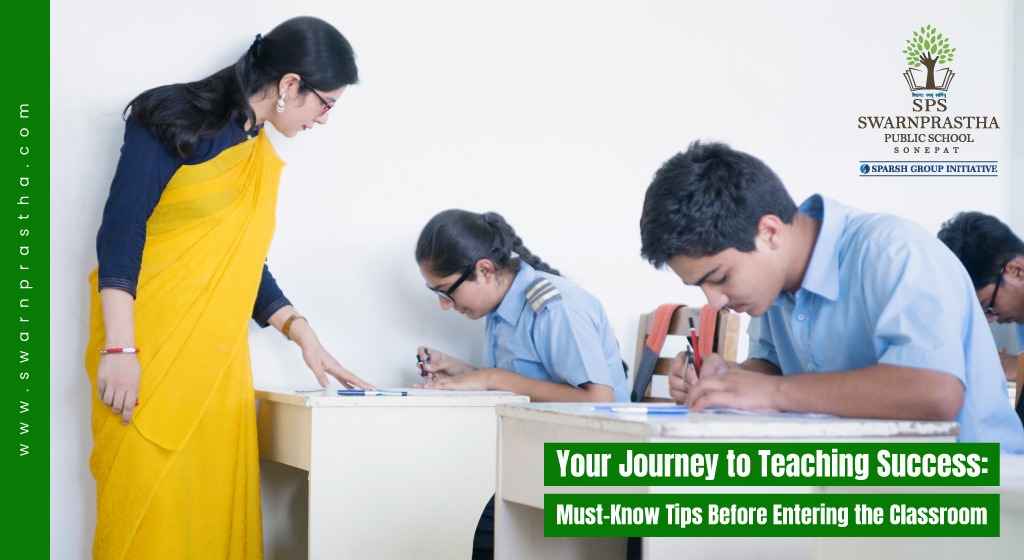Teaching is not just a job, but a noble vocation that requires passion, tolerance and determination. Preparation for a class begins way before the teacher enters an actual classroom. For aspiring educators, preparation is key to ensuring a smooth and rewarding transition into the world of education. Below are some key concepts that can steer new teachers in the right direction towards being positively influential instructors.

1. Understanding the Role of a Teacher
Before stepping into the classroom, one must bear in mind that teaching is not merely the act of imparting knowledge. Teachers are not only instructors but guides, mentors and enablers of knowledge acquisition. They are not only responsible for student’s academic progress, but also the emotional and social development of children. This places a great responsibility on teachers to be an inspiration to students.
2. Know Your Curriculum
A level of curriculum familiarity is considered to be one of the most important aspects of teaching. To plan good lessons, one requires knowledge on the subjects to be taught and assessed, the learning objectives as well as the assessment criteria. New teachers should also always update themselves on any change made in curriculum to match the academic standards set by various curricula.
3. Develop Classroom Management Skills
One of the most difficult issues experienced by teachers at the start of their careers is the management of the classroom. Policies, practices and classroom organisation play major roles in managing students’ behaviour. Methods such as setting regular patterns, awarding incentives and solving problems on time can foster effective learning environments.
4. Prepare Engaging Lesson Plans
Clearly sequenced and motivating lesson plans are a key aspect of good teaching. It is important that classes are differentiated and involve varied types of tasks to suit all learning styles. The use of technology and multimedia in teaching can also help in making lessons engaging and something that students will look forward to.
5. Build Strong Relationships with Students
The foundation of successful teaching lies in building trust and rapport with students. Taking the time to understand their interests, strengths and challenges fosters a sense of belonging and motivates them to excel. Simple actions like knowing their names, listening to their concerns and celebrating their achievements can make a significant difference.
6. Seek Guidance from Experienced Teachers
Seasoned educators are invaluable resources for new teachers. They can offer practical advice, share tried-and-tested strategies and provide support during challenging times. Building a network of mentors and colleagues creates a strong support system and helps in professional growth.
7. Stay Organised
Teaching involves juggling multiple responsibilities, from lesson planning to grading assignments and communicating with parents. Developing organisational skills is crucial to managing these tasks efficiently. Using planners, digital tools, and time management techniques can help teachers stay on top of their responsibilities.
8. Embrace Continuous Learning
Education is a dynamic field, and teachers must be lifelong learners to stay relevant. Attending workshops, pursuing advanced certifications, and keeping up with educational research enhance teaching skills and knowledge. Reflecting on one’s teaching practices and seeking feedback also contributes to professional growth.
9. Prioritise Self-Care
Teaching can be demanding and burnout is a common concern among educators. Prioritising self-care is essential for maintaining physical and mental well-being. Setting boundaries, taking breaks and engaging in hobbies outside of work help teachers recharge and remain enthusiastic about their profession.
10. Understand the School’s Culture
It is also important to remember that all schools are different and have their own culture and beliefs. Gaining knowledge of the school’s vision, policies and fellow students prepares new teachers to have a positive impact. Carrying out school functions and engaging with other members of the staff as well as parents makes everyone feel that they are part of the system.
Conclusion
Success in the teaching profession is a road map that might start with preparation and undergo a cycle of growth and development through experience. If new teachers know their roles, manage the class well and build rapport, these teachers can indeed positively impact their students. Similarly, it is also important to embrace challenges as development agendas and remain relevant.
At Swarnprastha Public School, we understand the importance of supporting our educators by providing them with what they require to perform their duties optimally. With clear deliverables, professional accountability and emphasis on growth, the school serves as an incubator for the development of both teachers and students. Any fresher who wishes to become a part of Swarnprastha Public School, the best school in Sonipat, signs up for an enriching experience where the passion for teaching & the pleasure of mentoring young students combine optimally.
FAQ
1. How can new teachers manage their classrooms effectively?
Establishing clear rules, following consistent routines and using positive reinforcement are key to effective classroom management.


